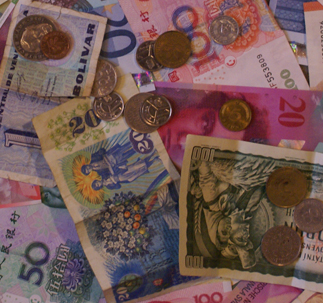Corruption not only undermines the global health response to COVID-19, but contributes to a continuing crisis of democracy, says the anti-corruption campaign group Transparency International (TI) in its annual Corruption Perceptions Index (CPI).
The index ranks 180 countries and territories by their perceived public sector corruption according to assessments by those in the field and surveys of business executives; on a scale of zero to 100, where zero is highly corrupt and 100 is very clean.
The UK has a score of 77, placing it 14th in the world, between Hong Kong in 13th and Austria in 15th. TI says that while the UK is the first G20 country to launch a public register of beneficial ownership, a loophole in the law allows foreign companies to purchase real estate anonymously. This is particularly problematic as research shows that over 75 per cent of properties subject to criminal investigations between 2004 and 2015 used offshore anonymous companies to hide their owners’ identities.
The UK government committed to closing this loophole by introducing a register of beneficial ownership for property, but it has yet to come into force. The necessary legislation has been subject to significant delays, TI comments. In the meantime, rich businesspeople linked to autocratic regimes are allegedly purchasing property via shell companies.
The top countries on the CPI are Denmark and New Zealand, with scores of 88; then come Finland, Singapore, Sweden and Switzerland, that each score 85. The United States had its worst score since 2012, on 67 points.
Even countries that do well in the Corruption Perceptions Index (CPI) have their own integrity challenges, whether crimes or institutional shortcomings such as in supervision of the financial sector in the European Union; or companies in rich countries taking advantage of the weak rule of law elsewhere to win business through bribes, kick-backs and other corrupt deals.
The UK is among countries that the campaigners point to where luxury property is a way to launder the gains of corruption and other crimes. In some countries including the UK, professionals involved in the process, like real estate agents, lawyers, accountants and notaries, are meant to flag suspicious transactions. But evidence shows that they usually don’t, TI complains. The pressure group describes Malta as ‘lost in corruption‘.
The bottom countries in the Index are South Sudan and Somalia, with scores of 12 each, followed by Syria (14), Yemen (15) and Venezuela (15).
Just as corruption generally can harm education and healthcare, and public projects, so corruption related to covid-19 can bribery for covid tests, treatment and other health services, to public procurement of medical supplies and overall emergency preparedness.
Delia Ferreira Rubio, Chair of Transparency International said that coronavirus is not just a health and economic crisis, but a corruption crisis. ”And one that we are currently failing to manage. The past year has tested governments like no other in memory, and those with higher levels of corruption have been less able to meet the challenge. But even those at the top of the CPI must urgently address their role in perpetuating corruption at home and abroad.”
For the Europe region findings of the index, visit the TI website.
Visit www.transparency.org/research/cpi.
More in the March 2021 print edition of Professional Security magazine.










